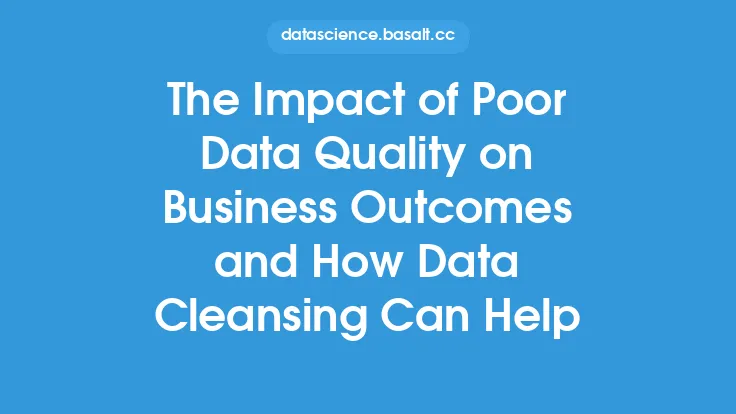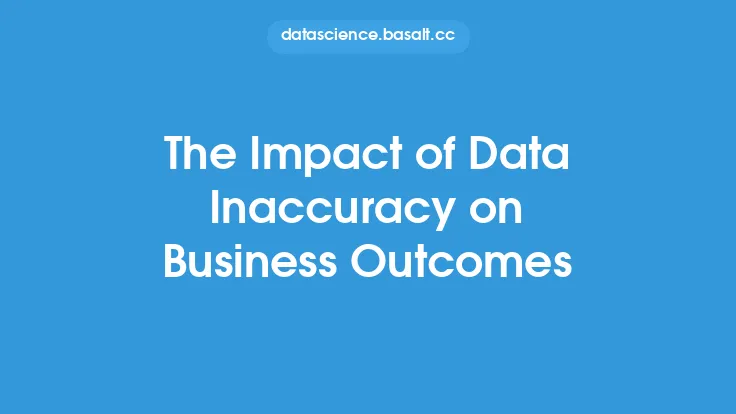The increasing volume, variety, and velocity of data have led to a significant shift in the way businesses operate and make decisions. Big data engineering has emerged as a critical component of this shift, enabling organizations to extract insights and value from large datasets. At its core, big data engineering involves the design, development, and maintenance of systems that can handle massive amounts of data, providing a foundation for data-driven decision-making.
Introduction to Big Data Engineering
Big data engineering is a multidisciplinary field that combines concepts from computer science, statistics, and domain-specific knowledge to develop scalable and efficient data processing systems. It involves a range of activities, including data ingestion, processing, storage, and analysis, with the goal of extracting insights and value from large datasets. Big data engineers use a variety of tools and technologies, such as Hadoop, Spark, and NoSQL databases, to design and implement data pipelines that can handle massive amounts of data.
The Impact of Big Data Engineering on Business Outcomes
The impact of big data engineering on business outcomes is significant, with organizations that adopt big data engineering practices experiencing improved operational efficiency, enhanced customer experiences, and increased revenue. By leveraging big data engineering, businesses can gain a deeper understanding of their customers, markets, and operations, enabling them to make data-driven decisions that drive growth and profitability. For example, a retail company can use big data engineering to analyze customer purchase behavior, preferences, and demographics, enabling them to develop targeted marketing campaigns and personalized customer experiences.
Key Components of Big Data Engineering
Big data engineering involves several key components, including data ingestion, processing, storage, and analysis. Data ingestion involves collecting data from various sources, such as social media, sensors, and logs, and transporting it to a centralized location for processing. Data processing involves transforming and aggregating the data into a format that can be analyzed, using tools such as MapReduce, Spark, and Flink. Data storage involves storing the processed data in a scalable and efficient manner, using technologies such as Hadoop Distributed File System (HDFS), Amazon S3, and NoSQL databases. Data analysis involves using statistical and machine learning techniques to extract insights and value from the data, using tools such as R, Python, and SQL.
Big Data Engineering Tools and Technologies
A range of tools and technologies are used in big data engineering, including Hadoop, Spark, NoSQL databases, and cloud-based platforms. Hadoop is an open-source framework that provides a distributed computing environment for processing large datasets. Spark is an in-memory computing engine that provides high-performance processing of big data. NoSQL databases, such as MongoDB and Cassandra, provide a scalable and flexible way to store and manage large amounts of data. Cloud-based platforms, such as Amazon Web Services (AWS) and Microsoft Azure, provide a range of big data engineering services, including data storage, processing, and analysis.
Best Practices for Big Data Engineering
To get the most out of big data engineering, organizations should follow several best practices, including defining clear goals and objectives, developing a scalable and flexible architecture, and ensuring data quality and governance. Clear goals and objectives are essential for ensuring that big data engineering efforts are aligned with business outcomes and that the right data is being collected and analyzed. A scalable and flexible architecture is critical for handling large amounts of data and providing a foundation for future growth and expansion. Data quality and governance are essential for ensuring that the data is accurate, complete, and secure, and that it is being used in a responsible and ethical manner.
Challenges and Limitations of Big Data Engineering
Despite the many benefits of big data engineering, there are several challenges and limitations that organizations should be aware of, including data complexity, scalability, and security. Data complexity can make it difficult to extract insights and value from large datasets, particularly when the data is unstructured or semi-structured. Scalability can be a challenge, particularly when dealing with large amounts of data, and can require significant investments in hardware and software. Security is a critical concern, particularly when dealing with sensitive or confidential data, and requires careful planning and implementation to ensure that the data is protected from unauthorized access or theft.
Real-World Applications of Big Data Engineering
Big data engineering has a range of real-world applications, including customer analytics, predictive maintenance, and fraud detection. Customer analytics involves using big data engineering to analyze customer behavior, preferences, and demographics, enabling businesses to develop targeted marketing campaigns and personalized customer experiences. Predictive maintenance involves using big data engineering to analyze sensor data from equipment and machinery, enabling businesses to predict when maintenance is required and reduce downtime. Fraud detection involves using big data engineering to analyze transactional data, enabling businesses to identify and prevent fraudulent activity.
The Future of Big Data Engineering
The future of big data engineering is exciting and rapidly evolving, with advances in technologies such as artificial intelligence, machine learning, and the Internet of Things (IoT). Artificial intelligence and machine learning are being used to develop more sophisticated big data engineering systems that can learn and adapt to changing data patterns and business needs. The IoT is generating vast amounts of data from sensors and devices, requiring big data engineering systems that can handle large amounts of real-time data. As big data engineering continues to evolve, we can expect to see new and innovative applications of big data engineering, particularly in areas such as healthcare, finance, and transportation.





